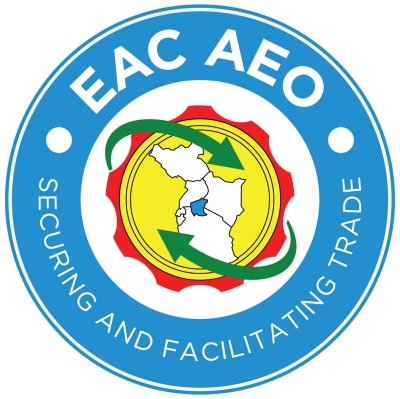EAC Authorized Economic Operator (AEO)

Background
The EAC regional Authorized Economic Operator (AEO) program was conceived by the Commissioners of Customs of the East African (EAC) countries of Burundi, Kenya, Rwanda, Tanzania and Uganda in 2006 after the adoption of the World Customs Organization (WCO) SAFE Framework of Standards by the WCO Council in 2005. The Commissioners’ decision was in line with the EAC Protocol that requires the EAC region to set up a Customs Union as one of the building blocks for regional integration. The decision was also prompted by the consideration that since the AEO program is about trade facilitation and the security of the supply chain, traders and Customs stood to gain more if the whole supply chain within the region is covered under one program.
The AEO program is a WCO program that is being implemented worldwide. It aims to enhance Customs efficiency in the face of increasing volumes of trade and the increasing vulnerability of the international trade supply chain to security threats as well as the use of the international trade supply chain as a conduit for high security risk materials. The AEO program tackles these challenges by shifting the perspective, so that instead of focussing on the goods themselves, Customs focus on the traders. The compliant traders are therefore given the AEO status which means they are low risk companies and can therefore be trusted by Customs. This implies that Customs can handle the consignments of such companies with less controls compared to others. That way the AEO program is an instrument for growing compliance.
The EAC Customs administrations face the same problems just like other Customs administrations around the world. After all, international trade is always about goods moving from one country to another. The AEO program is therefore looked at as one of the programs that will help Customs within the EAC improve efficiency and effectiveness in securing the international trade supply chain while at the same time facilitating trade.
The AEO program is designed to facilitate and enhance the experience of the complaint trader when undergoing Customs clearance processes.
The simplified procedures for AEOs has had tremendous effect with regard to reducing the cost associated with the movement and clearance of goods. The EAC is currently pursuing mutual recognition with other trading blocs, a move which will lead to EAC AEOs enjoying more benefits when trading outside EAC region.
Joining the Regional AEO program therefore opens the doors for unlimited opportunities and the key to unlock the potential of your business. It is the Customs way of supporting business and for business to support development in the EAC region
How it Works
The EAC Regional AEO program covers and is applicable in all the Partner States namely Burundi, Kenya, Rwanda, Tanzania and Uganda save for the Republic of South Sudan which was not a member Partner State of EAC at the commencement of the programme. However, plans are underway to operationalize the program in the Republic of South Sudan.
The regional AEO program operates under a common set of criteria, instruments, authorisation process, benefits and monitoring system in all the Partner States.
An applicant for AEO Status, irrespective of the Partner State therefore goes through the same set of criteria like her/his counterparts in other Partner States.
The Customs experts who administer these criteria are trained together to ensure harmonisation and uniformity in process.
Authorization Process
The authorisation process can be summarised into a four-stage process as below;
- The application is lodged with the national Customs administration, which takes it through the Authorisation process.
- Once satisfied that the applicant qualifies, the national Customs administration checks compliance records of the applicant with the Customs administrations in the other Partner Sates and approves the applicant’s application.
- The applicant is invited to sign a Memorandum of Understanding (MoU) which is done by the Customs Administration on behalf of EAC.
- EAC Secretariat issues a certificate to the applicant.
Benefits
General
- Recognition as low risk company
- Faster Clearance procedures with Customs
Benefits offered by Customs
- Automatic passing of declaration
- No physical examination of goods, except for random or risk based interventions.
- ECTS requirement waiver where applicable
- Expedited payment of refund claim
- Reduced Customs security where applicable
- Priority to participate in Customs initiatives
- Guaranteed renewal of Customs license
- Priority treatment in cargo clearance chain
- Waiver of movement bond requirements for AEO
- Self-management of bonded warehouse
